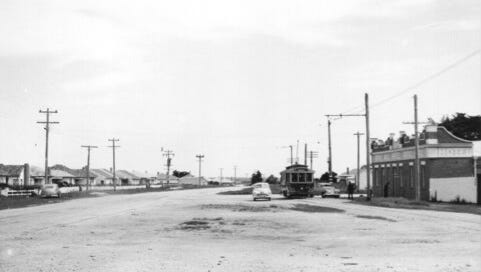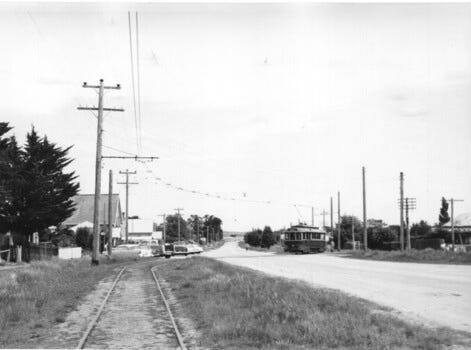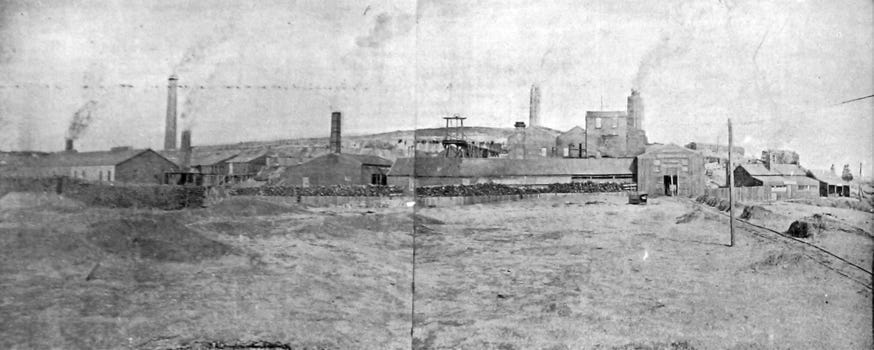The Battle of Sebastopol
In the town where explosives once cracked the rock for gold, a quieter battle unfolded—inside homes, inside hearts.
Sebastopol is a working-class suburb south of Ballarat, named after the famous siege of Sevastopol during the Crimean War. In the early days of the Victorian gold rush, the sound of explosives shook this place too. Miners had to blast through layers of basalt to reach the buried reefs and rivers of gold beneath.
But the real battle here wasn’t fought with bayonets or guns. It was domestic. Fought in kitchens and on muddy walks to church. In fatherless homes. In small acts of faith and endurance.
This poem comes from that place. From the ghosto of my grandmother’s memories, and the silences she carried. From a childhood shaped by absence, by community, by an Ireland left two generations behind.
It’s dedicated to her, and to the women who held their families together while history kept trying to break them apart.
The Battle of Sebastopol
(for my grandmother and her mother Annie)
No glory in this place—
just hard streets,
frost-filled drains,
an orphanage on the edge of town
daring us to forget,
like generations before—
Ireland emptied.
Potato fields left fallow,
blighted on a rocky rise.
Stone houses, cloth-hung doors,
abandoned to the landlord’s curse.
We came here to live,
but the mines swallowed us whole—
just as they did our fathers,
day after day
of their short lives.
The Battle of Sebastopol
was nothing
compared to our love
under siege:
not enough blasted money,
too much drink for bachelor uncles,
too many muddy mornings
on the way to church in the rain.
For one hour,
we felt respectable.
Our mother—
leaning into the back of a hardwood pew,
among quiet rows of longing families—
let herself rest.
She surrendered
to the silence,
to the prospect
of a future
without flowers.Reflection:
I often wonder what it cost them, these women in my family - to keep going. To raise children with so much absence around them. This poem, like much of my work, is a kind of listening. For what wasn’t said. For what we carry unknowingly. Fatherless, my grandmother grew up in Sebastopol, looking after her younger brothers and sisters, while her mother Annie was a domestic worker in Ballarat, Australia. They were catholic and my grandmother became a nun until her until she left to work in the local psychiatric hospital and got married while still in her twenties. She then moved out to a small farm. My grandma didn’t talk a lot about her childhood. She told me about her and the kids in the family going on occasion on a picnic with a rich Aunt who drove a big open top automobile. She also mentioned how one of her younger brothers wandered out into the paddocks and was mistaken for an orphan and ‘taken home’ to the orphanage that was not far away, even though he didn’t live there. He got home safely.
Thank you for walking with me through these family poems. If something here echoes in you, feel free to share your own story in the comments or pass this on to someone who also came from a town built on silence and the promise of gold .
This post is the fourth in a series. You can read the other three most recent posts on my homepage








I’m finding these writings fascinating . I wonder did I ask questions when I was younger about our history ? Did school ever ask us to do an assignment prehaps ? Did we look behind ? I think I asked about Grandpa, I was told a farmer and because our grandpa was a farmer I actually presumed all the ancestors were farmers. So I’m really appreciative of this new knowledge your sharing .. brilliant , I like the part about letting herself rest for an hour on the pew ( when my 2 boys were small my in-laws offered to pick me up to join them at church . It was a memory of quiet being allowed to just sit . and a life without flowers so touching I can imagine so well ..